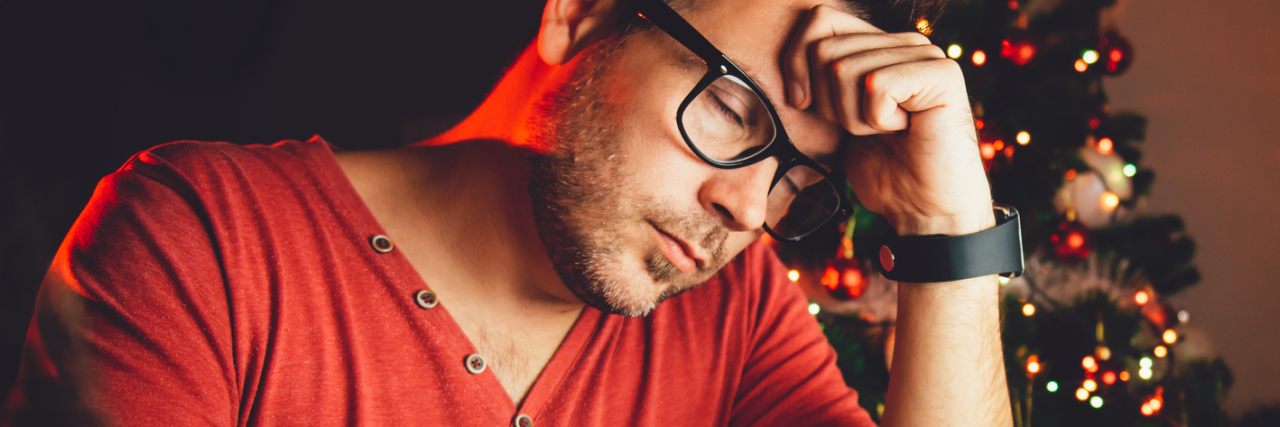An Unexpected Gift: Recovering From Borderline Personality Disorder During the Holidays
Recently, I was at my best friend’s house helping her plan a holiday party. Like most people, all of the office celebrations, family gatherings, shopping extravaganzas, subtle and not-so-subtle cultural cues to “Spread good cheer!” “Be Merry!” and generally high expectations for the season were setting her on edge. What started as a fun exercise in event planning devolved into anxious list-making: decorations needed, dishes to be served, activities (ornament-making, cookie baking, etc.), and of course, attendees.
Throughout the process, my friend emphasized my status as “co-host,” and told me I had full say in all aspects of the party. However, as we named friends and family to invite to her house, I mentioned a former co-worker and she suddenly paused, cringed and shook her head.
“No, don’t invite him. I don’t have a good feeling about him.”
My entire body tensed. I could feel a hot tide ripple through me, and that familiar grip of anger squeezing my heart. I gritted my teeth and clutched the arms of the patio chair I was sitting in on her back porch.
A year ago, I would have dealt with my reaction by either completely shutting down, numbing out and dissociating from the discomfort of the moment; or, I would have “raged out” and berated her for “rejecting” my suggestion, my other friend, and therefore — according to what I call “borderline personality disorder (BPD) logic” — me. Instead, I employed some of the many new skills and tools I have picked up in dialectical behavior therapy (DBT) treatment. With some calming breaths, I let the angry high come down until I could think a bit about what was happening. I accepted that I was angry, but also that it would pass, and then turned my attention to my friend. Why would she react that way? What exactly led to that moment, and how was she feeling? Where was the line between her feelings and behaviors and mine? And was there really a link between her snapping at me and her valuing me as a friend? Better yet, was there a link between any of that and my own intrinsic value as a person?
Because of months of practice and tons of support from my treatment team, the above process took only a minute or two (believe me, when I started treatment this was a laborious exercise that often failed completely). I sat in silence with my friend for a moment, and just looked into her eyes to let her know I saw her and all she was experiencing — that we were together in this moment. I remembered she had just gone through a lot with her family during a Thanksgiving trip and had come back exhausted, lonely and a little sad. I thought about how much she longs for family, and how this party she is planning carries a lot of meaning for her. To her, my wanting to invite an old work acquaintance might not have fit with her image of the holiday party as a picturesque gathering of friends. She may have felt like I shouldn’t invite one of “my” friends, but only one of “our” friends into her home.
Whatever the case, this realization allowed me not only to sit with and through my upset emotions; it also let me become more attuned to my friend’s emotional state. I got a little quieter for the rest of our afternoon together, a bit more observant, and made sure to find moments to tell her how much I cared for her, how excited I was for the party, and how much I want to celebrate this special time of year with her. There was no need for me to “have a talk” with her about what happened because I had processed it on my own, which made me more present, balanced and open.
When we parted, I sincerely hoped I had lightened her load at least somewhat, but regardless felt good about my tiny victory over BPD (every day that I live with BPD is a victory!) which ultimately allowed me to be a better friend.
As many people with BPD know, our illness can get in the way of connecting with others. But our deep feelings and ability to sense the emotional states of others can often act as a bridge between hearts. This holiday season is my first with the new skills I have learned in treatment, and as I use them more and more, I have been surprised to see how much they don’t just benefit me, but the people I love. They make me more compassionate, aware and thankful for what I have. And ironically, due to the stress of the holidays for most everyone I know, the knowledge I’ve gained in recovery sometimes makes me the most “sane” person in the room! I can model healthy ways of coping with overwhelming states of mind just by taking care of myself. This has been one of the many unexpected gifts of learning to live with BPD.
We want to hear your story. Become a Mighty contributor here.
Getty Images photo via Kerkez

